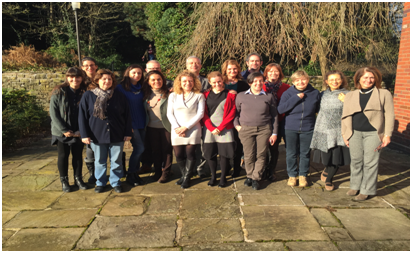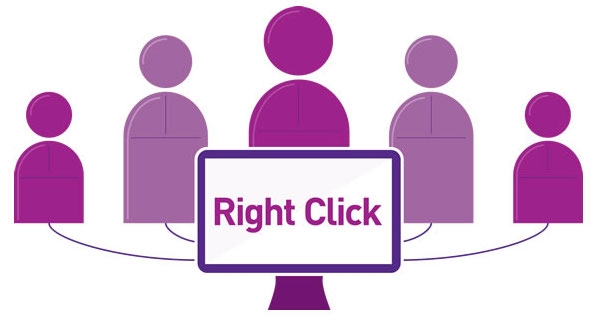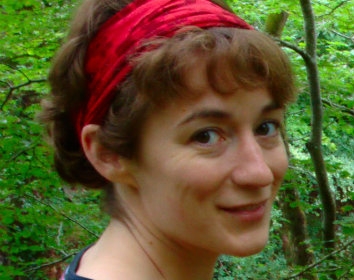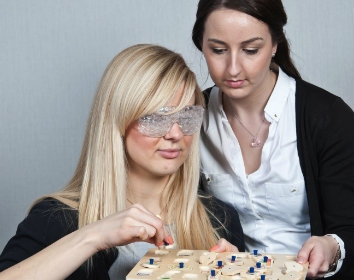Transform Autism Education
Karen Guldberg
Given the unique needs of autistic pupils and with rising numbers of children and young people being diagnosed on the autism spectrum, there is a pressing need to increase the awareness, knowledge and skills of the school work force and to improve the capacity of settings to meet the needs of children with autism.
‘Transforming Educational Practice in Autism: enhancing the skills, knowledge and understanding of teachers in the UK, Italy and Greece’, also known as ‘Transform Autism Education,’ is a three year research and development project funded by the European Commission, through their Erasmus Plus programme, Key Action 2, Strategic Partnerships.
Our overarching objectives with the ‘Transform Autism Education’ project are to gather a community of researchers, policy makers and practitioners in the UK, Italy and Greece to research current educational practices in autism in those respective contexts and to create professional development programmes in Greece and Italy.
The project promotes equity and inclusion in autism education by enhancing the skills, knowledge and understanding of teachers and other school staff who work with children aged between 5 and 10. It does this by modelling itself on the successful Autism Education Trust (AET) national partnership between Universities, local authorities, voluntary sector organisations, and schools in England. Funded by the Department of Education (UK), commissioned by the AET, and with the content developed by the University of Birmingham’s Autism Centre for Education and Research (ACER), it consists of quality indicators describing the key factors common to current good practice in settings, three levels of training materials in autism education and a competency framework for practitioners. The AET programme was developed through an innovative partnership model that included researchers, local authority personnel, schools, voluntary organisations, individuals on the autism spectrum and a creative agency, all of whom developed a shared ethos and a vision for autism education, which linked the public, private and voluntary sector together. The programme has received excellent evaluation, with clear evidence of enhancing the knowledge, understanding and practice of autism practitioners.
The ‘Transform Autism Education’ project builds on the AET project and it is led by Dr Karen Guldberg, Director of the Autism Centre for Education and Research (ACER) at University of Birmingham, UK. The partners consist of two Universities, a non-profit organisation, a school district and a creative agency. They include the University of Birmingham Autism Centre for Education and Research, Aikaterini Laskaridou Foundation; Autism Education Trust; Genium Creatives, Universita Cattolica del Sacro Cuore and Ufficio Scolastico Regionale per la Lombardia.
This strategic partnership focuses on:
- Sharing education practices in the training of teachers who work with children with autism aged between 5 and 10.
- Developing the skills, knowledge and understanding of educational professionals in each country.
- Adapting the AET professional development programme to create ecologically valid materials for these educational contexts and standards of practice.
- Creating a framework for international collaboration and a method of delivery that can be applied to other countries to research/evaluate and develop their own education practice in autism.
- Creating a website with Open Educational Resources developed from the project to support the education of pupils with autism internationally.
By learning from the processes and experiences of the AET programme, we plan to reflect and build on current autism education training programmes in the partner countries, and will employ an innovative and participatory methodology that integrates the use of ICT in novel ways. We will carefully examine the AET partnership model and analyse how it has been delivered to over 50,000 people since February 2012 in over 100 local authorities in England. We will then consider whether aspects of this methodology can be employed to the development of similar professional development programmes in Greece and Italy and to the construction of a website with Open Educational Resources, which will be targeted at school staff who work with children with autism internationally. Through an iterative developmental approach involving feedback from training deliverers and other stakeholders throughout the creation of the materials, we will ensure that the content is clear and accessible, and relevant to the local educational context and practitioners in partner countries.
In the first phase of the project, we are researching ‘state of the art’ in good autism practice in the three countries. We aim to review the literature on the state of the art in autism education (e.g. research papers, reports, policies) within each national context and get stakeholders and practitioners’ opinion on autism practices (e.g. attitudes towards inclusion, teaching strategies, training needs) using questionnaires, focus group interviews and 1:1 interviews. Researchers in the UK will also produce a written overview describing the AET model and a case study of a hub from the UK. After this phase, we will develop the content of the training for Greece and Italy. Our partners will be able to use the materials developed in the UK, but the focus will be on adapting those to their linguistic and cultural context, starting from where they are at in terms of the state of autism education. Phase three will be about train the trainer, piloting, quality assurance processes and evaluation of the training materials and delivery. Phase four will be devoted to the adaptation, translation and evaluation of the quality indicators and competencies, with phase five focusing on evaluation, the development of a sustainability framework and website creation. Phase six will focus on dissemination of the findings.
We are currently in the middle of the first phase, and we are immersed in analysing data from questionnaires, focus groups and interviews, as well as conducting literature reviews on autism provision and practice in all three countries. There are some initial preliminary findings emerging from discussions within the project team.
Some of the similarities between the countries are as follows:
- Good educational autism practice works for all children.
- All countries have an ethos of inclusion.
- There are similarities in the diagnosis and understanding of autism (DSM V) and educational practices.
- There is a need/desire for training and there is a market for that.
- There is a recognised need for a global model of training professionals in autism.
- There is recognition that pupils with autism have unique needs and also need special planning.
There are also some differences emerging and these include that:
- Individual Education Plans are not enforceable by law in the UK and Greece, whereas they are in Italy.
- In Italy, parents can choose how long the school week should be for their child.
- In Greece, most education happens in private centres by therapists whereas in Italy psychologists do not get involved in education.
- Italy has hardly any special schools and mainstream schools have to accept a child if the parents choose the school.
The Transform Autism Education project team are excited to be undertaking this project and are totally committed to making a difference to pupils with autism and their families through enhancing the skills of the teachers. We started the project at the end of November 2014 and have already made great strides forward! Most of all, we really enjoy working together and are all passionate about our project.
RESOURCES AND LINKS





